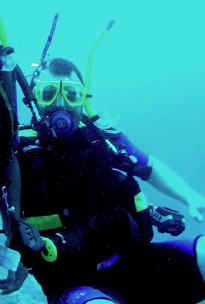
One of the things I’ve always espoused is, for a manager to be effective, they have to be out there, among their people, getting their hands dirty. Unfortunately, this isn’t always the case. There’s a lot of managers out there who are afraid to talk to their people, and may feel most secure managing through e-mail or instant messaging. Unfortunately for them, they’re going to have a much harder time getting their projects done, because their people will feel no connection to them. Without that vital human connection, work will progress slower, the manager will be less likely to find out about potential issues in time to prevent them, and overall project exposure will increase. Ultimately, the shy project manager will find himself (or herself) at the helm of a runaway freight train with no easy way to bring it under control.
(Hint: Spreadsheets and Gantt charts are pieces of paper and aren’t very effective when held up against an angry mob!)
So what can the shy project manager do to get out there and get dirty, if he or she is too worried about the consequences?
Here is a case where you can’t learn by reading…you have to learn by doing. So here’s a challenge to the shy PMs of the world. Pick an item on this list, and follow it through. I promise, you’ll be glad you did!
Get out there and do it!
1) Join your local theatre guild. A great thing about theatre is, you’re never penalized for expressing yourself. Just the opposite, in fact–acting requires it! Working with the cast and crew, you’ll find yourself creating a persona that belongs to the character you’re playing, but is also part of you. You can make that persona be very confident if you wish; confident enough to perform in front of a live audience. What you learn there, you can bring back into the boardroom and use those techniques to steady yourself. Amateur theatre guilds are made up of regular people just like you, and working with them helps to shed some of the fear that comes from being in the limelight.
Find the theatre guild in your town!
2) Join Toastmasters. Here’s a great club that doesn’t get enough press. Toastmasters teaches you public speaking and leadership skills. It’s very inexpensive to join and many members swear it’s their Toastmasters membership that’s been responsible for their professional success. Step by step, and in a supportive environment, your local Toastmasters chapter will get you up in front of a room of people and telling your story. As you progress through their self-paced study books, you’ll learn a ton about leading large groups of people through practice speeches and taking ownership of aspects of the club.
Find your local Toastmasters chapter today!
3) Take up scuba diving. Wow, Geoff, where did that one come from? Well, scuba divers are highly outgoing people and it doesn’t hurt to immerse yourself with them. More than that, though, a big part of PADI training is about self-management and how to deal with an emergency. Scuba diving has dangers that you need to know how to deal with to avoid injury to yourself or others. When you first get out there in the water, having that training gives you confidence that you can handle yourself. Further, the moment that water breaks over your head for the first time, you immediately start to manage your breathing to be able to make your descent. Those breathing techniques come in handy when you find yourself at a boardroom table full of hostile stakeholders! Also, diving is wicked fun!
Get PADI certified and get wet!
4) Learn first aid. In the same vein as scuba diving, this will give you confidence that you can handle yourself in an emergency. I think first aid is something everyone should have, because you never know when you’ll need it to save a colleague or loved one. Accidents can be very fast and happen entirely without warning. First aid will help you be prepared. Not only will you be learning a very valuable skill, but the confidence you gain will stand you in good stead.
There’s a St. John Ambulance near you.
5) Go on a trip by yourself, and take a tour. I spent a lot of time in South Korea, and one week decided I was going to go up to the Demilitarized Zone between North and South Korea. The trip was organized by the US military (I doubt it’s still running now, with the situation as it is). On the bus, everyone pretty much kept to themselves, and it was a kind of awkward “I don’t know any of these people” atmosphere the entire ride to the DMZ. After the extreme tension of the visit, however (even before the Bush Administration, North Korea wasn’t a place to send your kids), the bus ride back was full of people talking to one another and laughing. Despite the fact that we were still strangers, we took solace in one another’s company because we all shared a common (nerve-wracking) experience. Okay, so maybe you don’t have to go on such an extreme trip, but traveling alone with people you’ve never met forces you out of your shell.
Gap Adventures has some amazing trips. Let me know if you need some recommendations!
One more thing. Notice how all of the above activities involve putting yourself into a social situation with others. Like I said, this is something you have to learn by doing. Things may seem awkward at first, but because you’re all bound by a common interest, you’ll find yourself talking to people relatively quickly (so the discomfort will be brief).
A very smart man told me once, “leaders lead”. What he meant by that is, you don’t talk about leading; you don’t read about leading; you get out there and you do it! As daunting as it can be, the best advice I can give you is to put yourself in a situation with others where you have to do just that.


